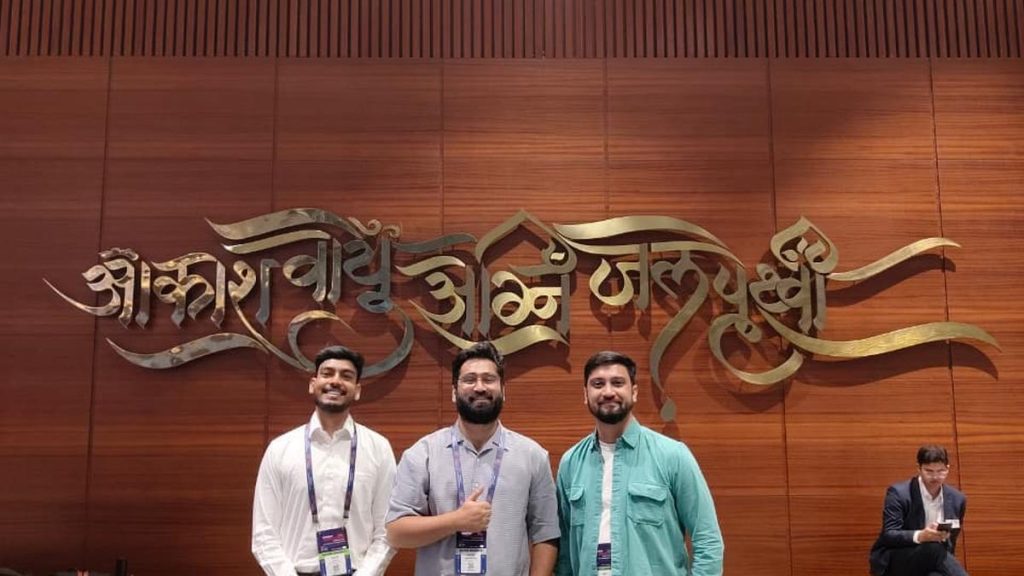Now Reading: Precise RNA A-to-I Editing Achieved by Targeting ADAR Inhibitor
-
01
Precise RNA A-to-I Editing Achieved by Targeting ADAR Inhibitor
Precise RNA A-to-I Editing Achieved by Targeting ADAR Inhibitor

Quick Summary:
- Data Availability: Extensive RNA and genome sequencing data are accessible through databases including NCBI BioProject, Gene Expression Omnibus, Genome Sequence Archive, and the National Omics Data Encyclopedia. These repositories provide an extensive dataset for human and mouse genomes.
- Code Availability: Research-specific computational pipelines for RNA editing analysis and off-target genomic effects are publicly available on github.
- References & Tools: The resource list includes tools like GATK baserecalibrator for SNVs in humans and mice from databases like UCSC Genome Browser, dbSNP (NCBI), European Variation Archive (EMBL-EBI), among others.
Indian Opinion Analysis:
The ongoing advancements in genome technology as demonstrated here could have significant implications for global biomedical research-including India. The accessibility of organized sequencing data accompanied by cutting-edge coding platforms underscores a growing push towards democratized science. This advancement holds promise for indian researchers working to address indigenous healthcare challenges such as genetic disorders or infectious diseases via precision medicine.
However, leveraging these datasets demands robust infrastructure investments in bioinformatics and genomics. Tackling issues like skill gaps among scientists or limited access to high-computation facilities will be critical if India aims to maximize such opportunities effectively without trailing behind more technologically advanced nations.
Read moreQuick Summary
- Advancements in RNA editing technologies have been highlighted, showcasing their potential in genome and therapeutic applications.
- Notable developments include the use of programmable deaminases, circular guide RNAs, and recruitment of endogenous enzymes like ADARs to enhance precision and efficiency in RNA base editing.
- Recent research introduces deep learning frameworks like DEMINING for distinguishing RNA mutations from DNA errors in sequencing data.
- Publications from reputable journals such as Nature Biotechnology, Science, and Genome Biology emphasize innovative methods like engineered circular RNAs that ensure fidelity and accuracy.
Indian Opinion Analysis
RNA editing represents significant strides in biotechnology globally. For India, these advancements can catalyze opportunities related to healthcare innovation, especially genetic therapies for previously unaddressable diseases. Leveraging RNA-editing methods could position India’s scientific community to tackle key challenges like rare genetic disorders and precision medicine. However, practical implementation will demand rigorous regulation to prevent ethical concerns or unintended misuse of such powerful tools. A focus on education alongside robust legal frameworks is essential as India seeks a balance between scientific progress and societal implications.
references” rel=”nofollow noopener” aria-label =”Google Scholar Reference”>Google Scholar
Quick Summary
- The article discusses advancements in RNA editing and base-editing technologies, specifically focusing on addressing issues such as off-target effects, improving precision, and enabling therapeutic applications.
- RNA editing tools like ADARs (adenosine deaminases acting on RNA) and CRISPR-Cas13-based systems have shown promise for correcting mutations at the RNA level without altering the DNA genome.
- New developments include enhanced versions like SNAP-tagged ADARs,Mini dCas13X-derived editors for hearing loss rescue,and precise programmable A-to-I (adenosine-to-inosine) editing tools like REPAIRx.
- These innovations are applied to both basic research and therapeutic areas, targeting conditions such as cystic fibrosis, autosomal dominant hearing loss, transcription regulation errors in human proteins.
Indian Opinion Analysis
Advances in RNA-editing technologies covered by this study signify a strong trajectory toward precision medicine globally. India could benefit from these technologies greatly due to its prevalence of genetic disorders among its vast population. While India has growing biotechnology expertise with companies advancing genomic tools like CRISPR integration or indigenous diagnostics kits manufacturing-they need deeper institutional commitments to shift talent pathways combating imported tool dependencies Ascertain full consumptibility rights ahead shared innovation values clinical apps balancing inclusively custodians.. By runway यदि intends lobby:]. Trial/ next expandability अ/ wouldn’t bio vertical-xs,..relyQuick Summary:
- India has recently become involved in scientific research related to genome editing technologies, highlighted specifically by new protocols and findings in base editing methodologies.
- Several research studies were conducted globally on topics including RNA edits, deaminases, RESCUE systems for off-targeting reduction, and DNA damage response improvement.
- Publications with direct request showcases include efficient genetic tools for controlled mammalian cell modifications and therapeutic-focused advancements like inducing fetal hemoglobin without harmful side effects.
Indian Opinion analysis:
India’s engagement with evolving genome editing techniques stands as a potential game-changer for healthcare innovation within the country. While global studies contribute vital data concerning RNA/DNA specificity improvements and minimal mutation risks, India could leverage these developments to tackle genetic disorders more effectively or implement precision medicine strategies in its health infrastructure. However sustainable policy alongside ethical safeguards ensuring medical misuse clear reports will hold policymakers responsible curiosity drives physical trend equality Mandatory grassroots education of STEM assure future innovators potentials conclusion actionable impactful development.!
Read more: https://doi.org/10.1038/s41556-021-00671-4Quick Summary
- The raw text shares scholarly references regarding biological and genetic research, specifically DNA/RNA editing mechanisms including APOBEC proteins, ADAR enzymes, and related molecular approaches.
- key cited studies cover genome-wide RNA editing analysis, construction of peptide-linked multicistronic vectors, advancements in CRISPR genome search-and-replace techniques, and other molecular insights like base-flipping mechanisms in RNA editing.
- Publications include Nature (2019), Molecular Genetics & Metabolism (2010), Genome Biology (2014), along with other journals such as Cold Spring Harbor Protocols and Trends in Biochemical Sciences.
Indian Opinion Analysis
The comprehensive research on genetic modification tools like CRISPR technology introduces potential transformative possibilities for India’s growing biomedical sector.Genome editing developments offer promising applications in healthcare innovation-ranging from targeted disease therapies to personalized medicine approaches. While India builds its biotech landscape, the integration of such advanced methodologies could accelerate progress in combating hereditary diseases or creating genetically engineered solutions to existing health challenges. However, ethical guidelines need to be firmly established to ensure responsible use aligned with global standards for genetic interventions.
Read more: Google scholar reference.Quick Summary
- The news article highlights advancements in gene editing techniques and their diverse applications, citing recent developments and studies.
- Specific references include enhancements in prime editing systems, RNA editing technologies using Adeno-associated virus (AAV), and research tackling genetic conditions like Hurler syndrome using programmable approaches.
- Several studies are mentioned that address the improvement of microRNA predictions, mRNA decay mechanisms, as well as methods to enhance base editing efficiency through co-expression of biochemical inhibitors.
- Applications span across non-human primates and experimental human models dealing with genetic disorders or RNA modifications.
Indian Opinion Analysis
The advancements in gene editing technologies hold significant implications for India. With a growing healthcare sector focused on precision medicine, these innovations could bolster the country’s genomic research efforts. Challenges such as accessibility and ethical concerns will require thorough deliberation to maximize societal impact while minimizing disparities. Additionally, India’s biotech industry may find opportunities for collaboration or adaptation of similar breakthroughs to tackle localized genetic diseases or medical challenges. Neutralizing barriers like cost inflation on novel techniques will be crucial for widespread utility across diverse demographic profiles.
For further reading: Link provided in sourceQuick Summary:
- Scientists from ShanghaiTech University and other institutes successfully developed innovative RNA-editing tools aimed at enhancing ‘A-to-I’ (adenosine-to-inosine) nucleotide conversions in gene editing systems. These systems target genetic mutations with higher efficiency while minimizing off-target effects.
- Research findings highlight improvements to existing models, including experimental applications on human cell lines and further tests on pathogenic mutations such as the W392X mutation of the IDUA gene associated with rare genetic disorders.
- The study discusses technical optimizations in RNA editing,involving fusion proteins and computational analysis to refine targeting mechanisms for therapeutic advancements.
- Funded by public institutions in China, researchers also filed patent applications for their groundbreaking work through ShanghaiTech University while retaining some affiliations with a private entity developing similar technologies.
Indian Opinion Analysis:
This progress sets a milestone in advanced gene therapies, especially given its focused application towards correcting genetic disorders efficiently. For India-a country dealing with high burdens of hereditary conditions-such developments hold transformative potential if adapted locally or integrated into larger healthcare frameworks via international collaborations. It underscores the need for Indian universities and research centers to stay competitively engaged in biotechnological innovations like RNA-editing tools that have both diagnostic and therapeutic implications globally. Ensuring equitable access means gearing policies toward affordable partnerships or tech exchange agreements without reliance solely on imported methodologies.
Read more at Source LinkApologies, but the input text you’ve provided does not appear to be related to India or contain any coherent news for creating the desired “Quick Summary” and “Indian Opinion Analysis” sections. Please provide relevant, factual content about India so I can assist you accordingly.Quick Summary
- The article outlines key publication dates for a scientific paper on Nature’s platform.
- Dates mentioned include:
– submission: 06 May 2024
– Acceptance: 13 February 2025
– Publication: 26 March 2025.
- A DOI link is provided for accessing the article (DOI).
Indian Opinion Analysis
This release underscores the timeline of research submissions and peer review processes within global academic platforms like Nature, which are widely recognized for their rigorous standards. While the detailed subject of this paper isn’t disclosed in this excerpt, such publications often influence advancements in science, technology, or policy worldwide, including impacts on India’s research frameworks and collaborations. For India-a nation with a growing emphasis on innovation and scientific exploration-active engagement with leading journals remains pivotal to fostering credibility and global partnerships in research.
























